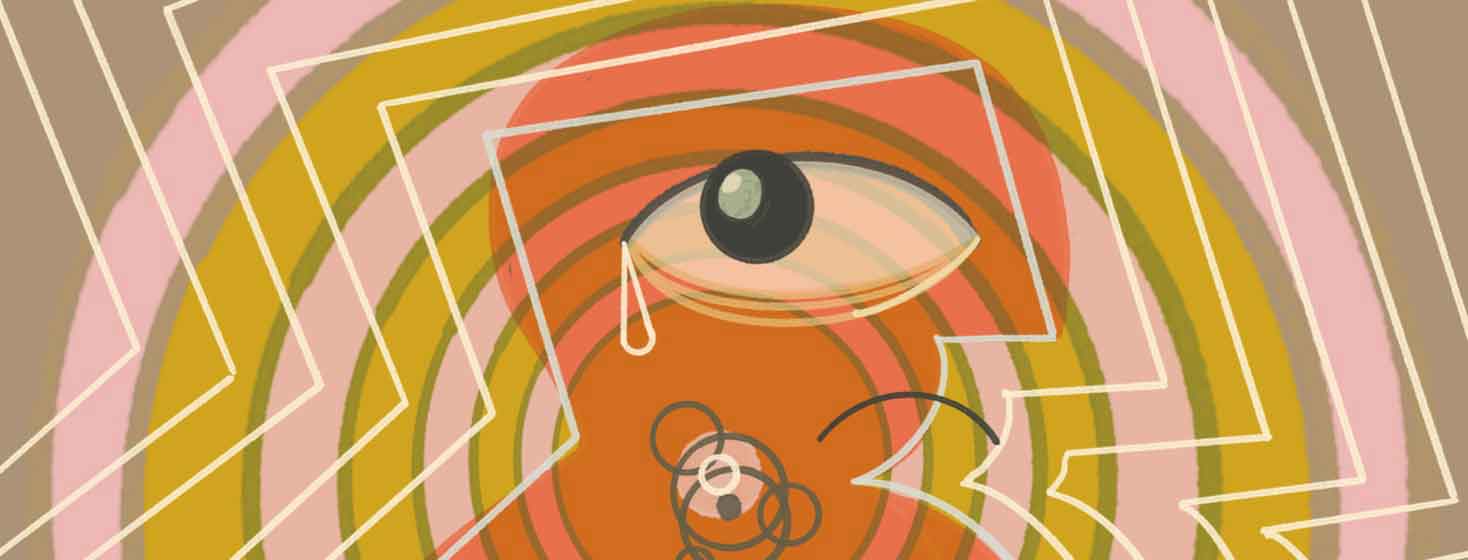When a Low Probability Feels Scary
I’m no stranger to autoimmune conditions. Let's take a look:
My autoimmune conditions
I am among the roughly 1% of the population that has celiac disease, an autoimmune condition related to the consumption of gluten.1
Celiac and Graves' disease
Individuals with celiac disease have an increased risk for autoimmune-related thyroid conditions - hello to my second autoimmune condition, Graves’ disease.2 The exact statistics regarding how many individuals with celiac disease also have Graves’ disease is not yet known. However, anecdotally, out of the hundreds of people I’ve met with celiac during my time as a patient advocate, I only know of a handful who also have Graves’.
Thyroid eye disease
Not everyone with Graves’ develops thyroid eye disease. It affects up to 50% of patients - that’s also me. Most individuals with TED have a mild case. I’m one of the unlucky 20-30% of people with TED who have a moderate/severe case, and I am approaching my 4th surgery to correct the damage caused by it.3 TED is considered a rare disease and in general, affects 16 women and 3 men out of every 100,000 people.
My rare diseases don't feel rare
I sometimes wonder - what are the chances? Celiac disease, followed by Graves’ disease, followed by thyroid eye disease. I don’t know the exact statistics, but it is far less than 1% of the general population. Why am I one of the unlucky ones? At many points, it’s felt like what can go wrong with my health will always go wrong.
The words "low-risk" are not reassuring
So I’m sure you could imagine my fear when I learned that about 1% of people who undergo a thyroidectomy experience permanent vocal damage. As a singer, that was my worst fear. Something that “rarely” happens can feel like a high probability to someone who is accustomed to being that 1%.
The stress I felt leading up to my inevitable surgery was overwhelming. I took extra time to seek out a thyroid surgeon who regularly worked with singers and specialized in vocal preservation. When I woke up in the recovery room, I was relieved to learn that the nerves that controlled my vocal cords were healthy and intact.
Fear of the future
Now that I’m nearing the end of my surgeries for thyroid eye disease, I still have a lot of fear. My doctor told me that most of his patients maintain their results after surgery. But wait a moment - "most" patients? It is possible for the condition to reactivate and for symptoms to resume.
There is still much that is unknown about TED and autoimmune diseases in general, and there are many factors that are outside of my control. My journey with TED was traumatic, life-altering, and frankly the worst experience of my life. Going through all of that again would be devastating. I’m afraid that this fear will follow me for my entire life. Will I look back to find that I was one of the lucky ones?
Accepting the unknown
I wish for a lot of things. I wish the phrase “most people” was comforting. I wish I could completely close the door to thyroid eye disease after my surgeries are complete. But I can only hope, take things one day at a time, and learn to accept that the future is unknown. This is still something that I struggle with, and I’m sure I’m not alone. I wish it were easier for all of us.

Join the conversation